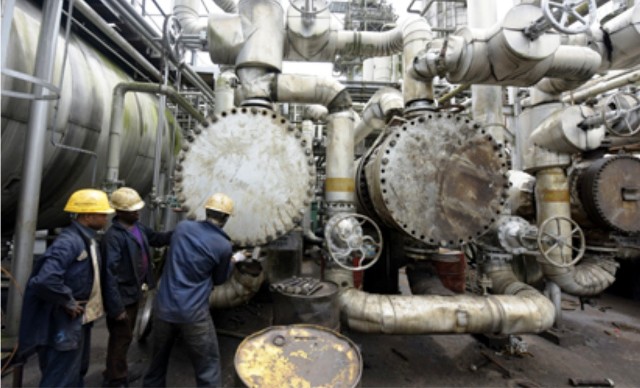Business
Oil Prices Rise Above $74 Pbd
Oil prices rose above $74 a barrel on Monday, helped by the threat by Nigeria’s main militant group, Movement for the Emancipation of the Niger Delta (MEND) to begin offensives in oil facilities in the country come September 15, 2009.
The news got traders at the global market panicking that the remains of Nigeria’s dwindling oil production might be affected if the threat is carried-out.
Aside this factor, expectations that demand for energy will grow were also spurred by United States (U.S) Federal Reserve Chairman, Ben Bernanke, who said at the weekend that the US economy is reviving.
The Nigeria’s main militant group made the threat in an e-mail statement, picking holes in the money-for-arms programme of the federal government.
This ‘deceit,’ it declared, would not solve the region’s problem.
“The ongoing amnesty programme by the government of Nigeria seems to have achieved separating those who still have the zeal to fight for our freedom from those who were in it for the money. “There are still too many! Bring them down to the spring, and I will sort out who will go with you and who will not –God to Gideon (Judges 7:5),” the group said.
MEND continued in the strongly-worded statement: “Today, Saturday, August 22, 2009, that sorting process was again re-enacted in Yenagoa, Bayelsa State, where weapons mostly bought by the government were displayed and the boys separated from the men in the circus”.
By mid-afternoon in Europe, benchmark crude for October delivery was up 55cents to $74.44 a barrel in electronic trading in the New York Mercantile Exchange. Earlier in the session, it peaked at $74.41. On Friday, it jumped 98 cents to settle at $73.89, it highest close since October.
In more good news from the US economy, the National Association of Realtors said Friday that home resales posted the largest monthly increase in at least 10 years.
Asain Stock Market rallied Monday on the recovery hopes, with Japan’s Nikkei 225 index jumping 3.4 per cent, while European indexes were also higher, with Germany’s DAX gaining 0.6 per cent and the FISE 100 in London up around 0.4 per cent.
“The market is on the cusp of $75. If it gets there, there it is not a hell of a lot to prevent if from going to $80 or $85”, said the Schork report, edified by US trader and analyst Stephen Schork.
Olivier Jackob of Petromatrix in Switzerland said the stability in equity markets and the continued weakness of the US dollar, “should remain supportive line in crude oil”.
Business
IPMAN Wants Marketers To Patronize PH Refinery

Business
Customs To Facilitate Trade, Generate Revenue At Industrial Command

Business
FG To Ban Overloaded Petrol Trucks
-
Rivers2 days ago
Fubara Ready To Partner Army Against Vandalism
-
Politics2 days ago
APC Lawyers Express Security Concerns At Benue LG Polls Tribunal Venues
-
Business2 days ago
Customs Broker Cautions FG Over N12trn Revenue Target … Harps On Trade Balance
-
News2 days ago
Nigeria Seeks EU Approval To Import Non-Hazardous Waste
-
Business2 days ago
FG To Ban Overloaded Petrol Trucks
-
Rivers2 days ago
Council Boss Warns Scrap Dealers, Commends NDI-IGBO For Thriving Economy
-

 Featured2 days ago
Featured2 days agoPa Edwin Clark Propagated National Unity, Says Fubara …Leads Rivers Leaders On Condolence Visit
-
Business2 days ago
Bakassi Deep Seaport Project’ll Be Funded Without Loan – Otu

